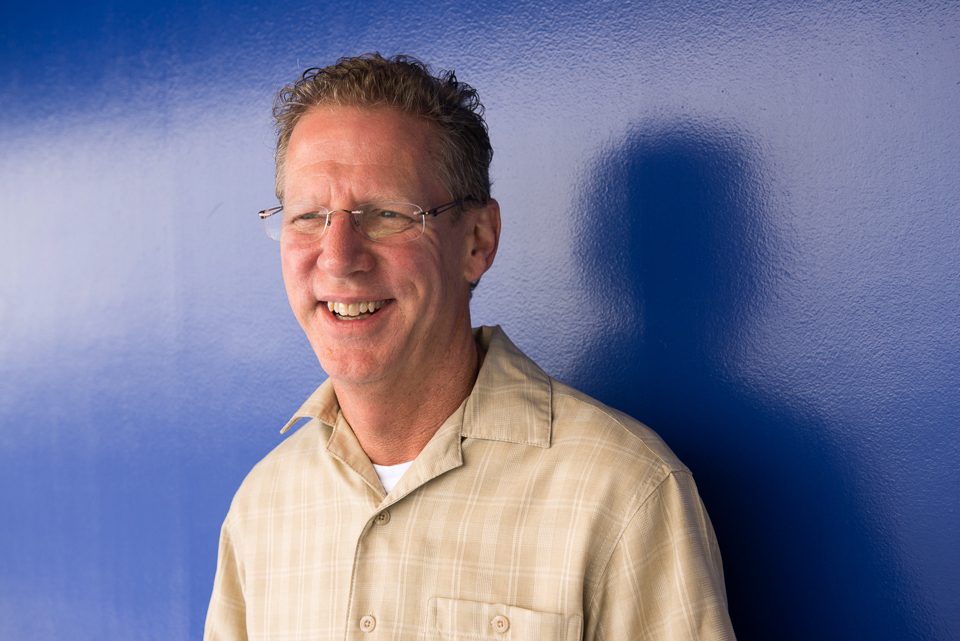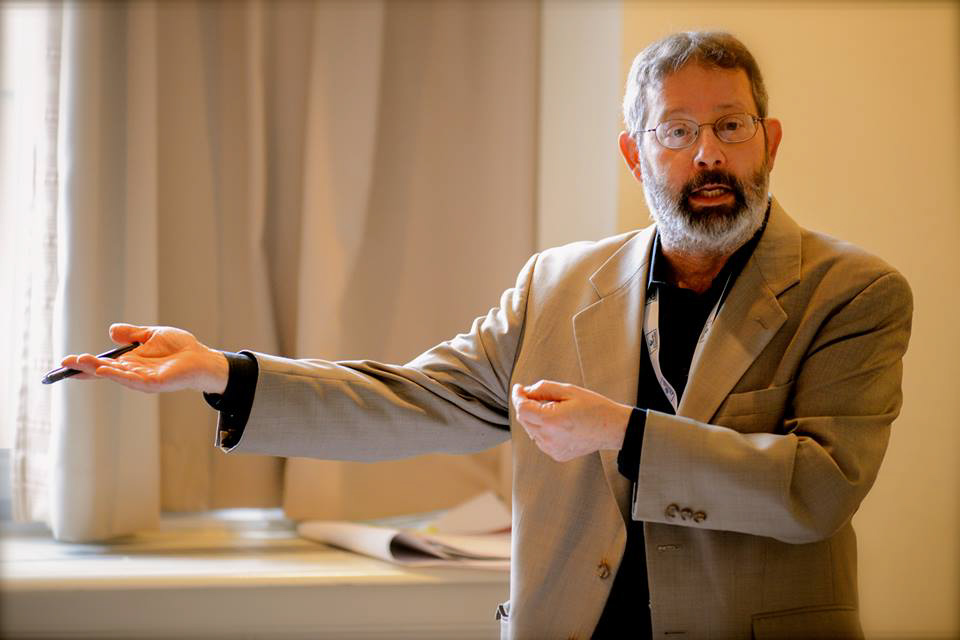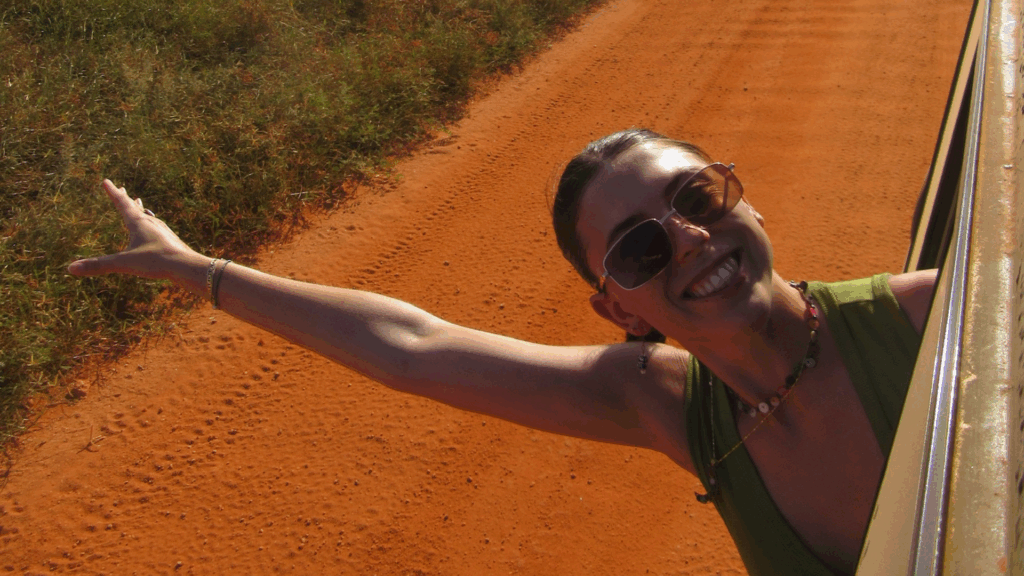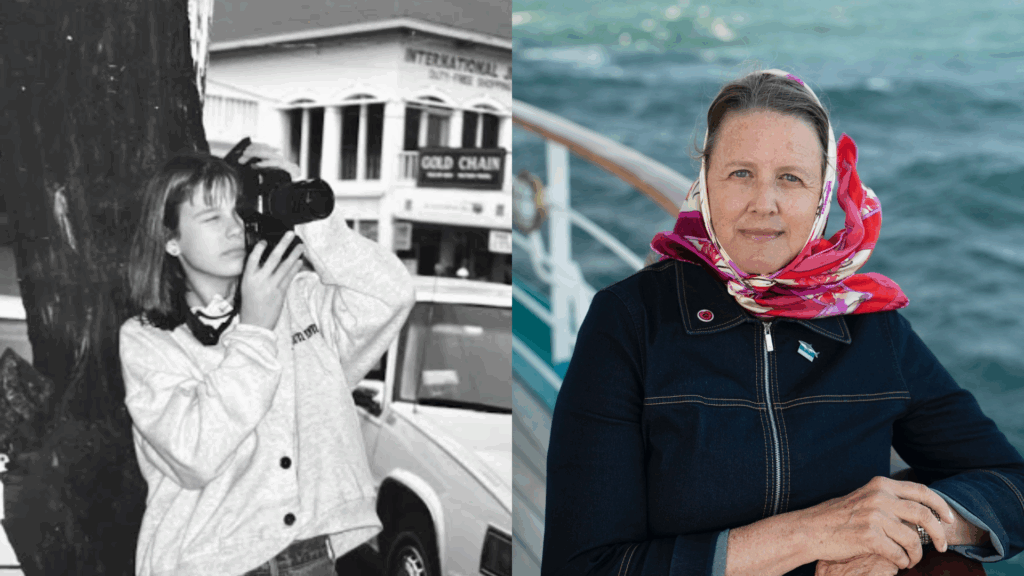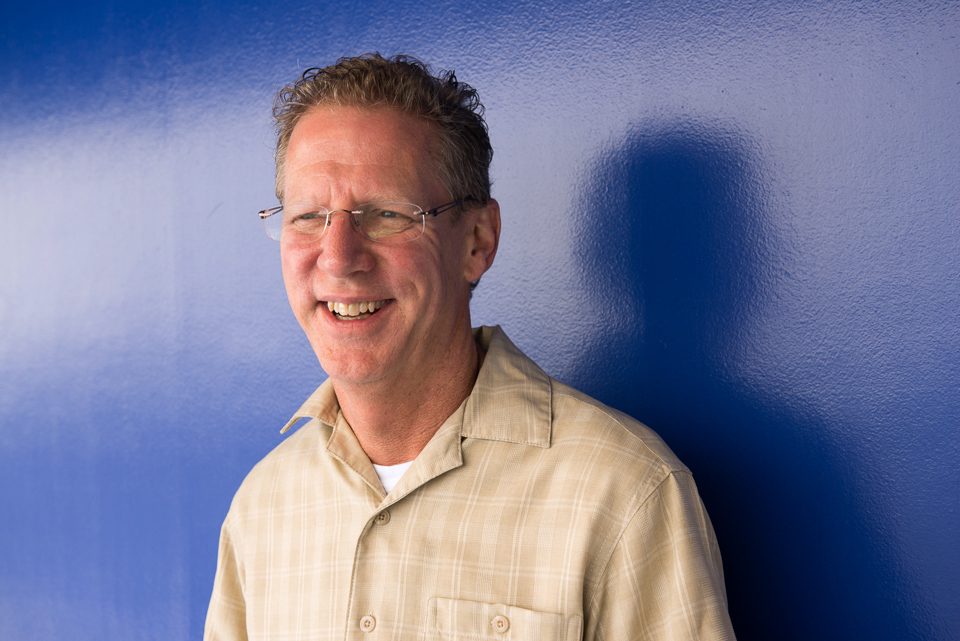 Mike Zoll calls his role as Executive Dean on the MV Explorer, where he oversees student life and community affairs, “the best job in the world.” With a career that has always focused on college student life, he thoroughly enjoys watching students thrive in a unique community where they get the chance to live, work and socialize alongside their professors, as well as children, lifelong learners, and other staff and crew from various backgrounds and walks of life.
Mike Zoll calls his role as Executive Dean on the MV Explorer, where he oversees student life and community affairs, “the best job in the world.” With a career that has always focused on college student life, he thoroughly enjoys watching students thrive in a unique community where they get the chance to live, work and socialize alongside their professors, as well as children, lifelong learners, and other staff and crew from various backgrounds and walks of life.
A veteran of the Semester at Sea (SAS) community, Zoll first sailed as a resident director in 1990, and returned to the program in 2006 to serve as a senior voyage administrator. The Spring 2014 trip is his sixth full voyage and his second time serving as Executive Dean aboard the MV Explorer.
Back in the U.S., Zoll is the Vice President of Enrollment and Student Affairs for the Institute for Shipboard Education (ISE) in Charlottesville, Virginia. He is joined on the ship by his wife Jennifer and his children Owen, Sophia, Henry and Grace.
You’ve visited nearly every continent, and have traveled in foreign cities often multiple times ‚Äì do you feel like you’re a travel pro?
I haven’t sailed with this itinerary since my first voyage, so it feels new again. But I don’t care if it was a year ago; as time passes, you come back to places with new eyes. You’ve changed; you’ve grown and matured, so a place will be different.
Do you give any advice to students at the start of the voyage?
I don’t profess anything to them; instead, I ask them questions. Why did you do the program? You’re part of the two percent of American students that choose to study abroad ‚Äì which by the way is embarrassing ‚Äì so thank you, but why? What is it for you, what is it that you appreciate in choosing to do this? What’s your story? That’s what fascinates me. I have much to learn from them. And then I like to connect people ‚Äì after talking with them something will spark me, and I’ll say, “Have you met this person?” Things like that can help to connect the community together.
The two more concrete pieces of advice I give first have to do with safety, and representing yourself well. Before every port we have these things called pre-ports, where I try to lift up the importance of cultural sensitivity, staying safe and staying healthy. I’ve been here eight years, and have a lot of experience that I’ll communicate at each pre-port. I explore what lessons we learned, and get to the main point, which is that we all need to stay alert and watch out for each other. It’s a big paternal thing. The staff and faculty talk in terms of our students as daughters and sons. We know you’re a mature young adult, but we feel that you’re in our charge, and it’s our responsibility to do all we can within that sphere to alert you to situations and make sure you’re safe.
Next, we want to make sure you’re being real global ambassadors; that we’re approaching situations and people and from other countries humbly; and that we’re guests, here to learn.
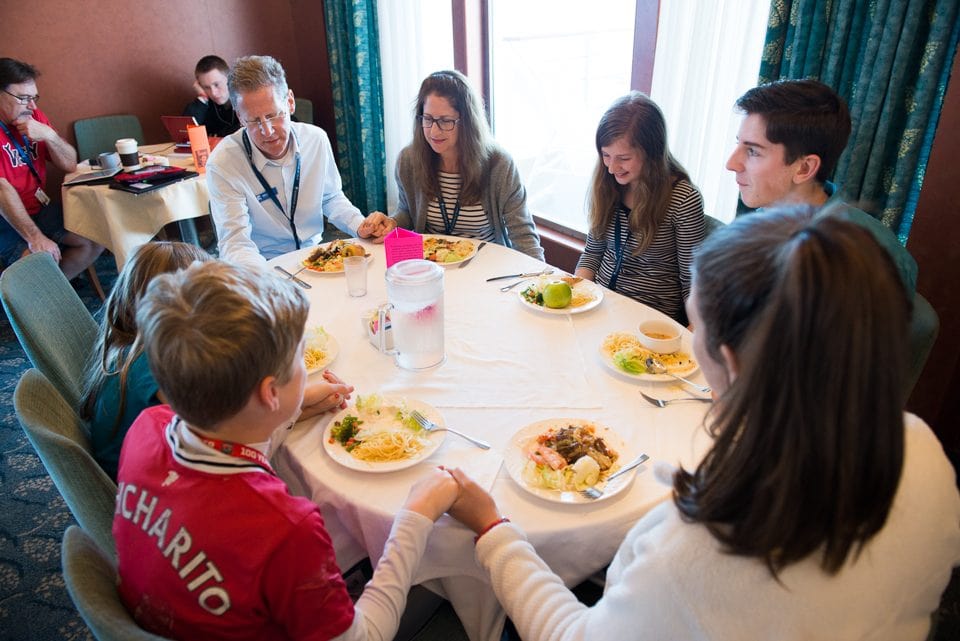
What is your family life like on the ship? How do your four children like it?
It’s in their DNA. My kids call the ship their second home. They’ve acclimated to this type of travel, which really embeds them into this living and learning community, which is this most perfect and pure form of travel I’ve ever experienced, all within an academic frame. They love it.
The remarkable thing is, in Charlottesville, our family is such a bunch of homebodies. They don’t anticipate what they’re not doing. For example, with this trip, up until the very last second they weren’t pining to be here; they weren’t denying the present in Charlottesville and their lives. And now, I guarantee you they’re here fully. I think travel can cause you to be present, in that moment, and you’re there fully in this place, with these people, in this time. I look at my kids and think, that’s just beautiful.
What are the challenges of your role as executive dean?
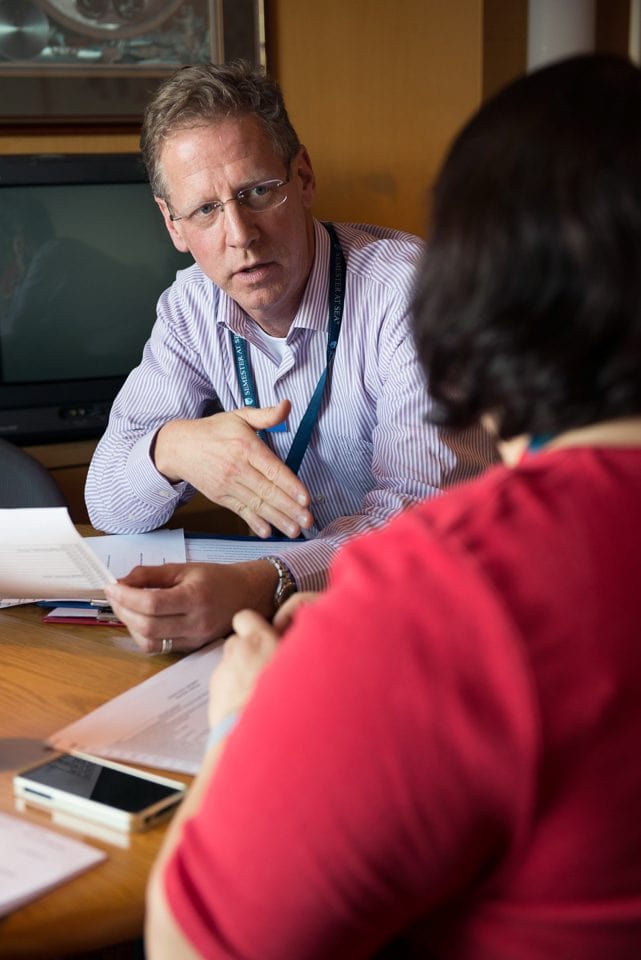
The Executive Dean is the chief administrator and I’m a chief administrator of the Semester at Sea program back home, so I have double-sided experience with this role. If something happens, its my job to get everyone on the same page and work to support the students through whatever has happened.
Next, my job is to challenge that small percentage of students who don’t make the learning community their priority. When someone’s goals attempt to override the learning community’s goal, it becomes a problem ‚Äì it becomes a peer issue, an administrative issue and often a safety and health issue. When our goals clash, we have to consider expulsion from the program ‚Äì which doesn’t happen often, but when it does I take it very seriously.
Third, time management. I’m work-work-work all day, so our family tries to carve out sacred time together during lunch. If you don’t guard your relationships like that, they can and will erode. It’s easy, especially if you’re an extrovert, to get sucked into the social learning environment and business of the ship and it’s intoxicating. If you’re single maybe it’s fine, but here you’ve got to make time for your family.
Favorite parts of the job?
Watching people interact, study, play games together onboard. This ship has a way of crosscutting communities where you get to know people the way you just can’t on land. The integration of lifelong learners, children, faculty and staff with students to the extent that each group allows themselves to be integrated, it happens, it’s natural.
That’s what gives me great joy. It’s this floating campus, this community. We’re kind of all we have for 150 days, for better or for worse, so we’re going to build something pretty amazing in a way that could never be done at home.
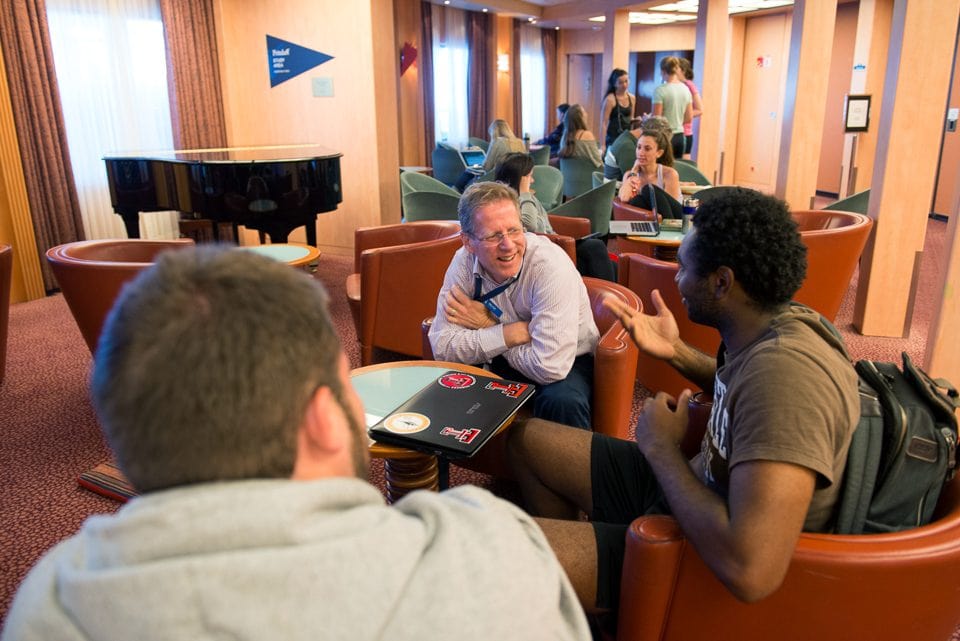
Many staff, faculty, lifelong learners and even students take multiple voyages with SAS. What keeps people coming back?
The travel experience is not the instigating factor. It’s the community ‚Äì it’s what happens in this unique, closed learning community that the ship facilitates. It’s this sense of structure that’s evolved over 50 years that has at its core the academic program. It’s really nonstop 24/7 learning if you let it be. You have that opportunity to be amongst people who teach you in class. When does that happen, right? I think that’s what brings people back. It’s the relationships that emerge over a long period of time ‚Äì 100 days.
I would be remiss if I didn’t talk about our ship’s crew ‚Äì from our evaluations, we know that the crew is one of the highest ranked factors when people are asked what they think about the experience. This is not a cruise that turns over every week, where they are just kind of faceless. Here, students have a chance to build relationships with these people. While the crew is here to serve, what happens is this unique blending of students who are able to recognize, these people take care of me, and they are also real people, and it’s fun to get to know them. Likewise, that’s reciprocated to the students, and this becomes a multinational learning laboratory ‚Äì because our crew, like our students, come from all around the world. So the multicultural sense of the program doesn’t just happen in port; it flourishes here on the ship.
